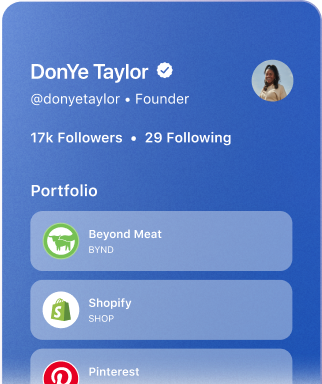I am on the Zacks free distribution list. Recently I got an email from Mitch Zacks, Senior Portfolio Manager at Zacks Investment Management, highlighting some potential investment risk factors and giving some interesting suggestions.
I would like to share with the #PublicCommunity some excerpts from his email.
🔹3 Risks to Monitor for the Rest of 2021
By the end of August, the S&P 500 index had posted seven straight monthly increases and had touched a new record high over 50 times – the most in seven months since 1964. The U.S. economy has also been in recovery and expansion mode, with corporate earnings and revenues powering higher alongside a rallying market.
As many investors know, however, the post-pandemic boom has been far from perfect. Supply chains remain tangled, many companies are struggling to hire needed workers, and supply/demand imbalances have thrown off the prices of everything from cars, to homes, to lumber and aluminum. The latest surge in Covid-19 cases is also weighing on consumer sentiment and throwing a wrench in office reopening plans.
Even still, the stock market has largely taken these issues in stride, seeming to reflect only the overwhelmingly better-than-expected earnings season. To me, this outcome is to be expected – I have written many times that stock prices are affected most by how earnings and interest rates perform relative to expectations. Better-than-expected earnings coupled with lower-than-expected interest rates are great for stocks, in my view, and that’s what we got in the first half of 2021.
Before we dive into potential risks for the rest of 2021, I want to remind you about the importance of keeping an eye on economic indicators as opposed to making emotional, knee-jerk reactions. Although this may be difficult to do, especially in the midst of so many negative news stories, we can help!
Looking ahead, investors should weigh how different factors could affect earnings relative to expectations, and also how interest rates may move relative to expectations. With this in mind, I have three risks to monitor for the rest of 2021.
🔹Risk #1: Sticky Inflation Puts Upward Pressure on Rates
Inflation has been running hot this summer, and prices have arguably been moving higher and faster than many expected. Consumer prices (CPI) rose 5.4% in July 2021 from July 2020, which marked the highest 12-month jump since 2008. The May CPI increase of 5.0% also raised plenty of eyebrows.
We know from parsing the inflation data that food, energy, and items like used cars, freight expenses, and ‘reopening’ items like airline fares are having an outsized effect. But rising producer prices are also worrying corporations, and much-needed commodity inputs like copper, aluminum, and nickel are feeling sustained price pressures.
Policymakers continue to insist that inflationary pressures are ‘transitory,’ and the market appears — for now — to be confirming the Fed’s stance. But the risk to watch in the second half is if inflation is stickier than some expect, which could put pressure on the Fed to speed up the tightening cycle and ultimately put upward pressure on longer duration U.S. Treasury bond yields. If interest rates go up faster than expected, it could spell volatility for stocks – particularly in high valuation categories.
🔹Risk #2: Rising Costs and Souring Consumers Put Pressure on Margins
This risk is tied to corporate earnings and the factors that may cause earnings to come in lower than expected in Q3 and Q4. We know the Delta variant is causing problems in many parts of the country.
There’s a possible scenario where rising costs and souring consumers can put some pressure on profit margins, at a time when the market is largely expecting corporations to continue to post strong recovery-like numbers. A scenario where corporations need to adjust earnings estimates downward – or a scenario where a higher-than-expected number of corporations miss – could weigh on stocks.
🔹Risk #3: The World Ex-US Undergoes Restrictions and Shutdowns
The United States has a relatively high vaccination rate and more than enough vaccines for the entire population. The rest of the world, and in particular emerging markets, has the opposite.
The risk here is that out-of-control cases and hospitalization rates could lead to economic restrictions and more shutdowns in countries critical to global trade. We’ve already seen issues tied to this risk – a surge of cases in Malaysia has added to semiconductor supply chain woes, and even China is seeing significant slowdowns in factory and services activity tied to economic restrictions. China’s gauge of construction and services fell to 47.5 in August, which moves it firmly into contraction territory – the first time it has dropped below 50 since February 2020.
The world is far from having enough vaccines to stem the spread of Covid-19 – perhaps even years away. The question for the global economy and global trade is whether production and economic activity can keep moving, despite a pandemic that’s ongoing.
🔹Bottom Line for Investors
The U.S. economy is expanding and will almost certainly continue to do so for the balance of 2021. What hangs in the balance, in my view, is whether corporate earnings can overcome the headwinds discussed in this column – namely, margin pressures tied to rising input costs and a potentially skittish consumer as the pandemic roils on.
The other side of the coin is interest rates, which most market participants expect to move higher this year. The question is, by how much? To date, rates have largely been defying expectations, which has been good news for stocks. In the second half, continued inflationary pressures and a Fed pivot into scaling back monetary stimulus could alter the landscape. Investors should watch these factors closely.
In addition to these risks, we recommend staying focused on long-term financial success. Keeping an eye on economic indicators and hard data that can positively impact your investments is a good start.
#investing #risks #riskmanagement #inflation #public
2
0

